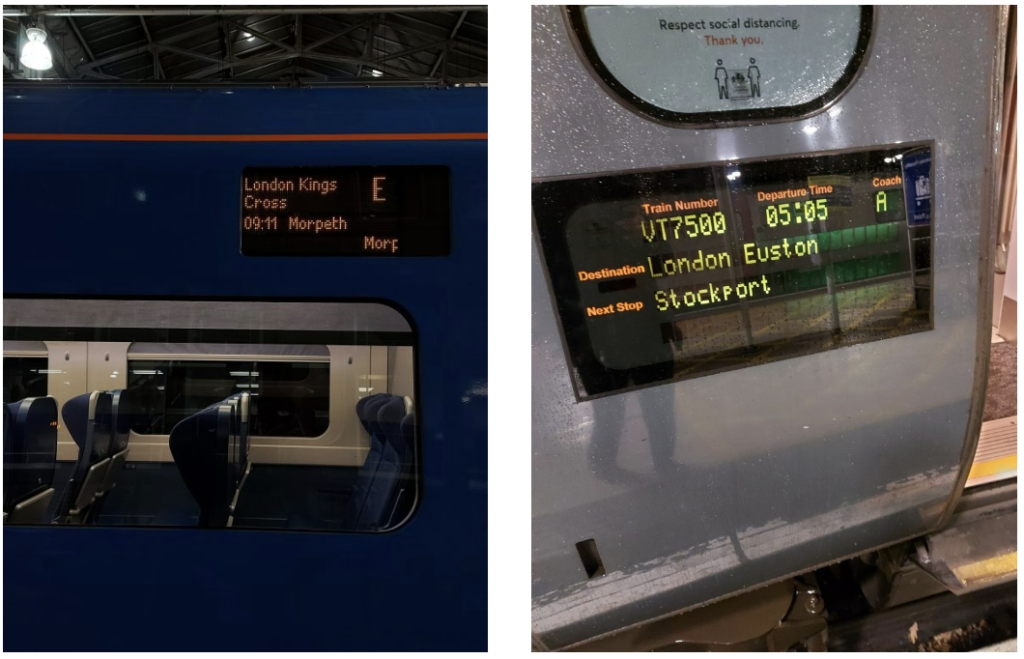Our top tips for first-time train travel
If you’ve never travelled by train before in Great Britain, it can be an overwhelming thought. From navigating ticket types to train companies, there’s a lot to take in. So we’ve put together our top tips for first-time train travel.
Know what ticket you need
When it comes to first-time train travel, you’ll know that you need a ticket to get on the train! So, what kind of tickets can you buy?
- Advance tickets are specific to the train you book. You can’t refund them, but when you book at Railsmartr, we’ll let you change them to a different train without any admin fees.
- Anytime tickets are the most expensive but they give you the most freedom. You can travel at any time! The price doesn’t change, either
- Off-Peak and Super Off-Peak tickets are somewhat flexible. Usually, they’ll mean that you can’t travel during the morning and/or evening rush hour. Some Super Off-Peak tickets are only valid at weekends, too.
This is the basic run-down, but there’s a little more to it if you’re interested. We’ve got our very own guide to different train tickets for that.
First-time train travel, First Class?
Sometimes, it pays to travel First Class. It could only be a little more expensive, and you might get fed, too! For a first-time train travel experience, it sounds idyllic.
But, be smart about this. If you’re travelling from one end of the country to the other, you’ll probably get a better seat and some food and drink. Travelling around the South East or on a local hop? There might be no difference other than the price.
We’ve done the legwork for you, though. Take a look at our ranking of every First Class product on trains in Great Britain.
3. Pack smarter!
Okay, so you’ve booked a ticket and decided where you’re going. Now you need to pack. There are a couple of rules, but it’s all common sense really. Don’t pack more than you can physically handle, for one. So, you can only bring three items with you! There are a few things you also can’t bring:
- Canoes, hang-gliders, surfboards, or anything else over one metre long
- Mopeds, motorcycles, motor scooters or motorised cycles
- Animals that might cause inconvenience or discomfort to others.
The big exception to this is Lumo trains. They’re a low-cost company with limited space, so they have some additional rules that you can find on their website.
We also took a trip around the country with a cabin-size suitcase to test out the best train for luggage. You can find more about that here!
4. Finding your train
One of the big fears about first-time train travel is whether you’ll find your train. It depends on where you’re travelling from, for one! Most stations will have a screen on the platform and by the entrance to tell you where to go, though.
At bigger stations, like in London, your train might not have a platform displayed. Don’t worry, this just means it isn’t ready to board yet. When it’s ready, they’ll show the platform.
What about finding your seat? When a seat is reserved for you, it’ll have a carriage letter and seat number. Most trains these days have screens like these:

This tells you the carriage letter and where the train is going. Simply jump on the right carriage and look for the seat numbers either above the seat or on it.
5. Don’t be afraid to ask for help
Railway staff know that passengers have questions. After all, they’re there to help! Don’t be afraid to ask if you’re unsure.
If you need a little extra help, that’s no problem. There’s a dedicated Passenger Assist service for people who might need mobility assistance or just some extra reassurance. We’ve produced a handy FAQ to tell you more here.
What else should I know about first-time train travel?
The last thing to remember is that you should book smarter, too. When you book your tickets with Railsmartr, you’ll never pay any extra fees.
In fact, we’ll never charge an admin fee if you need to refund or change your tickets. Because why should you pay more when the unexpected happens?